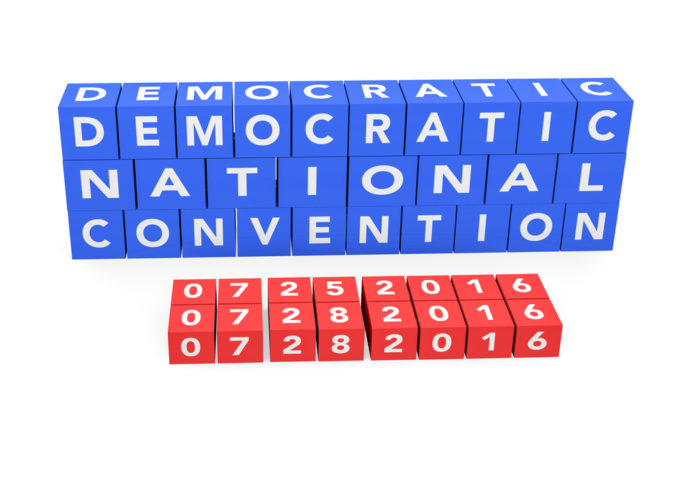Last night was the final night of the Democratic National Convention (DNC). History was made as Hillary Clinton became the first nominee for president of the United States for a major party. Kzhir Khan, a Muslim immigrant also made an emotional speech describing his son’s sacrifice during his time in Iraq.
We also thought it was worth mentioning another first time milestone that occurred at the DNC. The Democratic Party’s policy platform now includes language calling for the legalization of marijuana. See below:
“Because of conflicting federal and state laws concerning marijuana, we encourage the federal government to remove marijuana from the list of “Schedule 1″ federal controlled substances and to appropriately regulate it, providing a reasoned pathway for future legalization. We believe that the states should be laboratories of democracy on the issue of marijuana, and those states that want to decriminalize it or provide access to medical marijuana should be able to do so. We support policies that will allow more research on marijuana, as well as reforming our laws to allow legal marijuana businesses to exist without uncertainty. And we recognize our current marijuana laws have had an unacceptable disparate impact in terms of arrest rates for African Americans that far outstrip arrest rates for whites, despite similar usage rates.”
A DNC panel approved the language unanimously (15-0). There have been calls for years to reschedule marijuana, even through bi-partisan efforts in Congress. However, this may be one of the most high-profile calls to reform marijuana laws from federal lawmakers.
The move also may be aimed at Bernie Sanders supporters. He has been bullish on calling for marijuana to be legalized. Hillary Clinton has played the issue on the middle ground. Clinton has called for rescheduling but does not seem enthusiastic about full recreational legalization.
Currently, at least 25 states have legalized some form of medical marijuana and four states have legalized recreational marijuana use for adults. At least additional eight states, including California, will be voting on marijuana reform this November.









